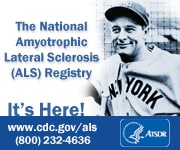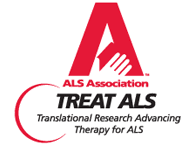

This morning there was a feature in the Wall Street Journal on the new trends in medical alert bracelets. They have moved from the basics to fashion statements.
We all understand the obvious need for such warnings for healthcare professionals when an unconscious patient may have diabetes or a pacemaker.
Perhaps we need some medical alert bracelets (or even instructions like they put on pillows) for people with ALS. We could call them I-Have-All-My-Marbles tags.
"I have ALS. You probably don't remember what this means because you were taught it is 'rare' so you didn't pay all that much attention in school. Guess what. It's not so rare. I have it. I have ALL of my marbles. Every last marble. It's simply a little difficult to understand my speech, so please read my lips and listen closely when I speak. Remember, I have all my marbles. My neck is extremely weak. If you move me, please remember that my head full of marbles needs some support because my neck cannot hold it up. I am perfectly capable of making all of my own medical decisions even though my speech reminds you of someone who is sloppy drunk. I have all my marbles. Please talk directly to me. My caregiver will assist with 'translating' my speech for you, but please speak to me. My ears are good. I have all my marbles. I probably have more marbles than many people in this room."
ALS awareness among healthcare professionals should be a priority among the ALS organizations that promote ALS understanding and patient services. We in America should be ashamed of a healthcare delivery system (especially in the primary care arena) that is largely clueless on delivering effective and respectful care to those with ALS.










